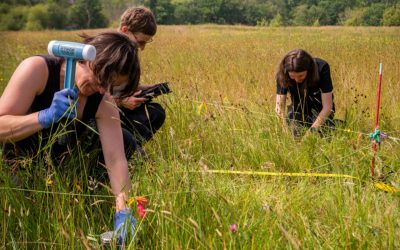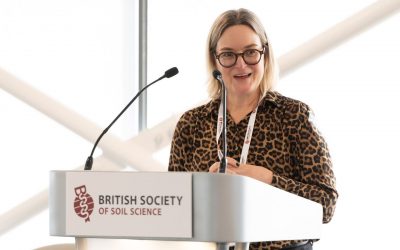At last night’s Macaulay Lecture, speakers emphasised that the climate crisis was a human rights crisis. As we know, increasing temperatures lead to extreme weather and food security challenges with Friends of the Earth estimating that there are already over 40 million refugees as a result of the climate crisis. According to the UN Food and Agriculture Organisation (FAO) at today’s session, Accelerating the implementation of the Paris Agreement through innovative climate resilient agri-food systems, 811m people already go hungry each year, a figure which is likely to get worse through both climate change and the Covid 19 pandemic.
We know that the UN Sustainability Goals are not achievable without investment in soil: recognising that the global ‘we’ has a responsibility to maintain and care for it.
At this morning’s COP 26 plenary lecture, Financing our Future, the Chancellor Rishi Sunak announced three key policies:
- Increased public investment, with £500bn committed to developing countries over the next five years
- Mobilisation of private finance. The Glasgow Financial Alliance for Net Zero has secured £130tr from the private sector to help the world achieve Net Zero
- Rewiring the financial system for Net Zero. The UK will become the first ever net zero aligned financial centre, implementing mandatory climate change reporting for businesses.
As yet, we don’t know how this will be practically implemented and what the outcomes will be for soil and agri-food systems. However, today’s FAO session highlighted the need to identify practical large-scale solutions which can be implemented locally, quickly. The International Fund for Agricultural Development (IFAD) has launched a series of grants aimed at building capacity at a local level and where local innovation should be accompanied by a focus on nature-based solutions, such as focusing on soil health and planting drought resistant crops.
At the National Farmer’s Union session, Agriculture’s Ambition: delivering food security, resilience and mitigation in a changing climate, panellists agreed that nature-based solutions were a key part of the solutions and recognised that despite the announcements around finance, money was wrongly directed: although a third of the food on our plates is produced by small scale farmers who farm fewer than 2.5 acres, less than 2% of global funds go to small scale farmers in developing countries. As a result, Elizabeth Nsimadala, President of the Pan-African Farmers’ Organisation, highlighted her members’ inability to access appropriate finance to invest in both nature-based solutions and crops which were more drought resistant.
Minette Batters, NFU England and Wales President highlighted that 70% of the UK is a farmed landscape and that farmers could be a key “eco-workforce” who have the opportunity to deliver a revolution in farming practices to improve food security and biodiversity. She believes this revolution begins in the way farmers communicate: people are more able to relate to discussions about food security and the environment, before they can relate to discussions about farming.
Across all of today’s session, the main theme was the need to engage with the latest science: to influence and direct our efforts, whether that is via innovative techniques or in nature-based solutions tailored for the local environment. However, it was recognised that there is a need to balance the environmental with political and economic aspects by supporting farmers to implement solutions over the long-term; something echoed in the Society’s Science Note on Soil Carbon.





